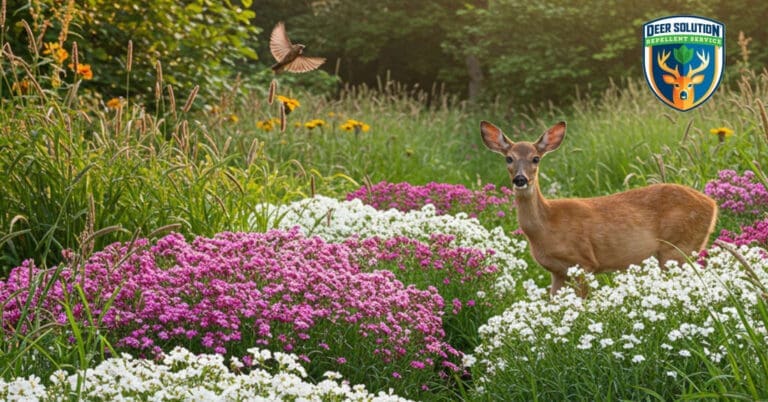Understanding the intricacies of garden ecology is essential for creating a thriving, harmonious landscape. One common question among gardeners is, Do deer eat dianthuses? Dianthuses are beloved for their vibrant blooms and resilience, often considered deer-resistant. This article delves into the ecological role of dianthuses, their interactions with other garden species, and provides an in-depth analysis of their deer-resistant properties.
The Ecological Role of Dianthuses
Supporting Pollinators and Beneficial Insects
Dianthuses play a pivotal role in supporting local ecosystems by attracting a variety of pollinators, including bees, butterflies, and other beneficial insects. These pollinators are crucial for the reproduction of many plants, contributing to the overall health and productivity of the garden. By providing nectar and pollen, dianthuses help sustain these insect populations, promoting biodiversity and ecological balance.
Soil Health and Sustainability
In addition to attracting pollinators, dianthuses contribute to soil health. Their root systems help prevent soil erosion, and they can improve soil structure by promoting the activity of beneficial microorganisms. Incorporating dianthuses into your garden can enhance nutrient cycling, making the soil more fertile and supportive of other plants. This aligns with sustainable gardening practices, which aim to create self-sustaining ecosystems.
Interactions with Other Garden Species
Companion Planting with Dianthuses
Companion planting involves growing different plants together to enhance growth, deter pests, and improve overall garden health. Dianthuses can be excellent companions for a variety of plants. For instance, planting dianthuses alongside vegetables can attract pollinators that benefit the vegetable plants. Additionally, their presence can deter certain pests, contributing to a natural pest management strategy.
Competitive Interactions
While dianthuses offer numerous benefits, it’s important to consider their interactions with other garden species. They can compete with other plants for resources such as light, water, and nutrients. To maximize the benefits and minimize competition, it’s advisable to plant dianthuses in areas where they have sufficient space to thrive without overshadowing or outcompeting neighboring plants. Regular maintenance and strategic placement can help ensure a balanced garden ecosystem.
Deer Resistance Analysis
Why Dianthuses Are Considered Deer-Resistant
Dianthuses are often categorized as deer-resistant plants, meaning that deer are less likely to consume them. This resistance is attributed to several characteristics of dianthuses, including their texture, fragrance, and certain chemical compounds present in the plants. These factors make dianthuses less appealing to deer, reducing the likelihood of browsing damage.
Scientific Insights into Deer Deterrence
Research into deer behavior has identified specific traits that deter feeding. In the case of dianthuses, the texture of their leaves and stems can be unpalatable to deer. Additionally, the plants may produce compounds that emit fragrances or tastes that are unattractive to deer. Comparing dianthuses with other deer-resistant plants, such as lavender or marigolds, highlights how different species employ various strategies to avoid deer consumption.
Situational Considerations
It’s important to note that no plant is entirely deer-proof. In situations where deer populations are particularly high or during times of food scarcity, deer may browse on plants they typically avoid, including dianthuses. Environmental factors, such as extreme weather conditions or habitat changes, can influence deer feeding behavior. Therefore, while dianthuses are generally deer-resistant, incorporating additional deer deterrence strategies may be beneficial in certain contexts.
Enhancing Your Garden’s Resilience
Incorporating dianthuses into your garden offers numerous ecological benefits, from supporting pollinators to enhancing soil health. Their interactions with other garden species, coupled with their deer-resistant characteristics, make them a valuable addition to diverse gardening practices. By understanding these aspects, gardeners can create thriving, sustainable landscapes that are both beautiful and resilient against deer browsing.
By applying these strategies, you can cultivate a garden that maintains its beauty and ecological integrity without compromising on sustainability. For tailored advice and eco-friendly solutions to protect your garden from deer, consider consulting Deer Solution. Their expertise can guide you in implementing effective strategies that align with your gardening goals.
Contact Us
If you have any questions or need further assistance with your garden, feel free to reach out to us at Deer Solution. We’re here to help you create and maintain a beautiful, sustainable garden environment.








